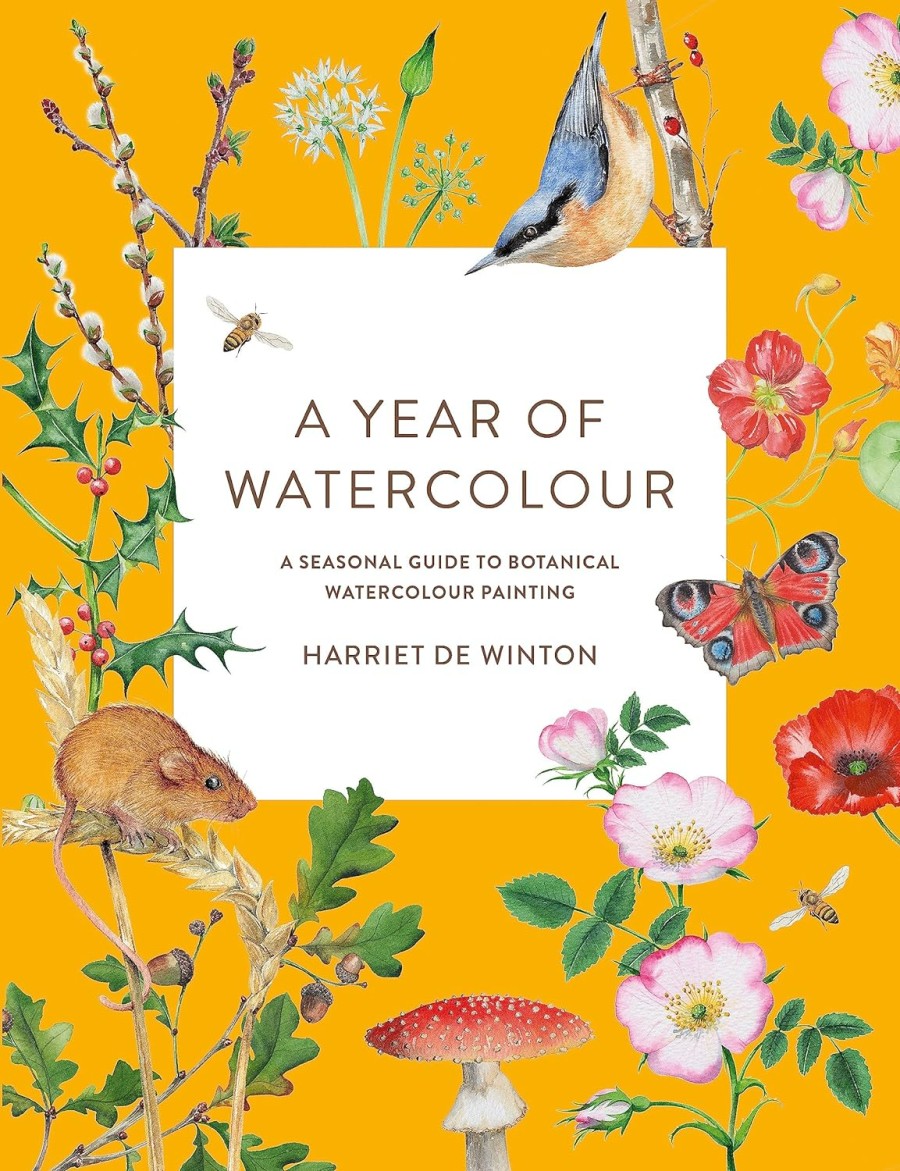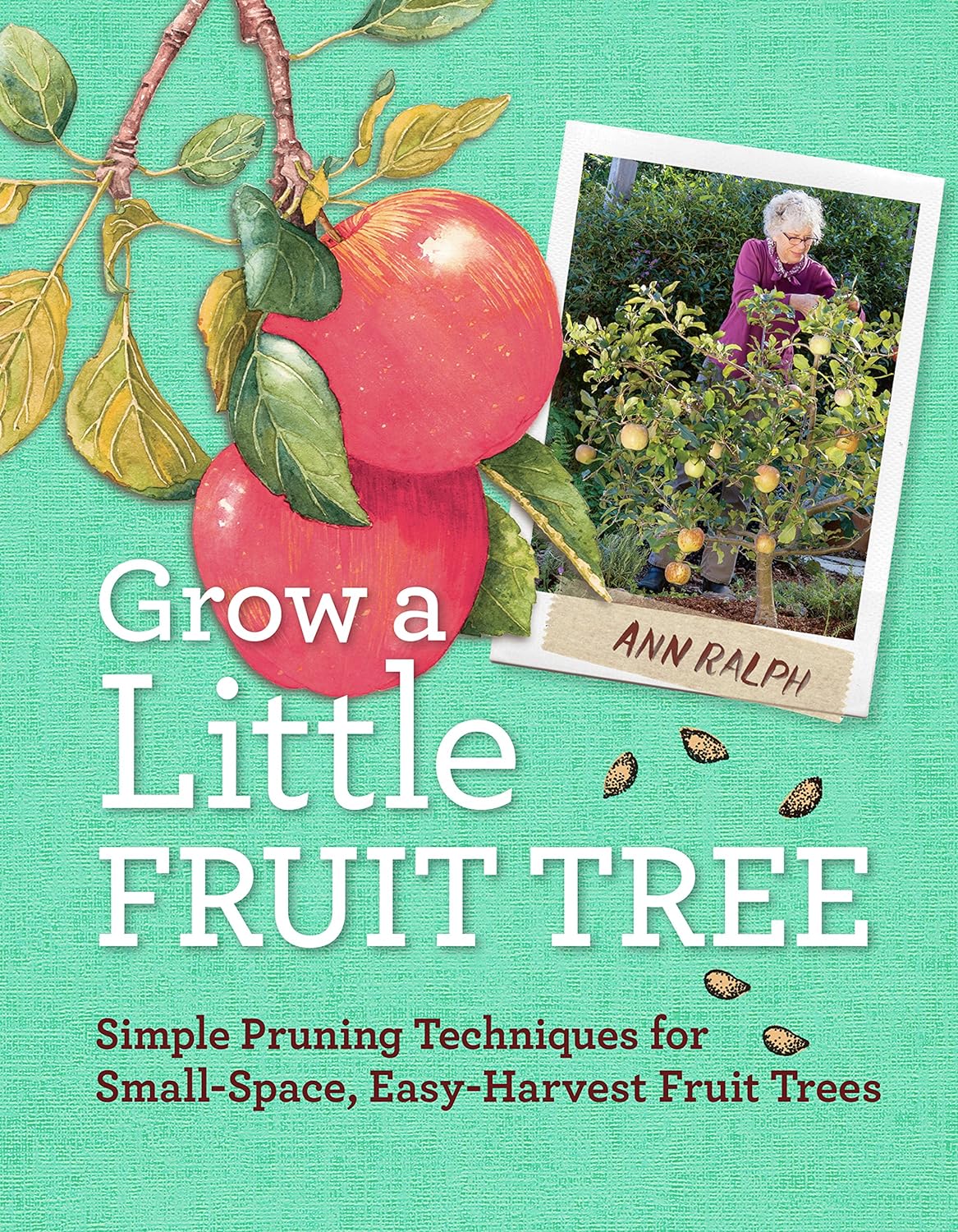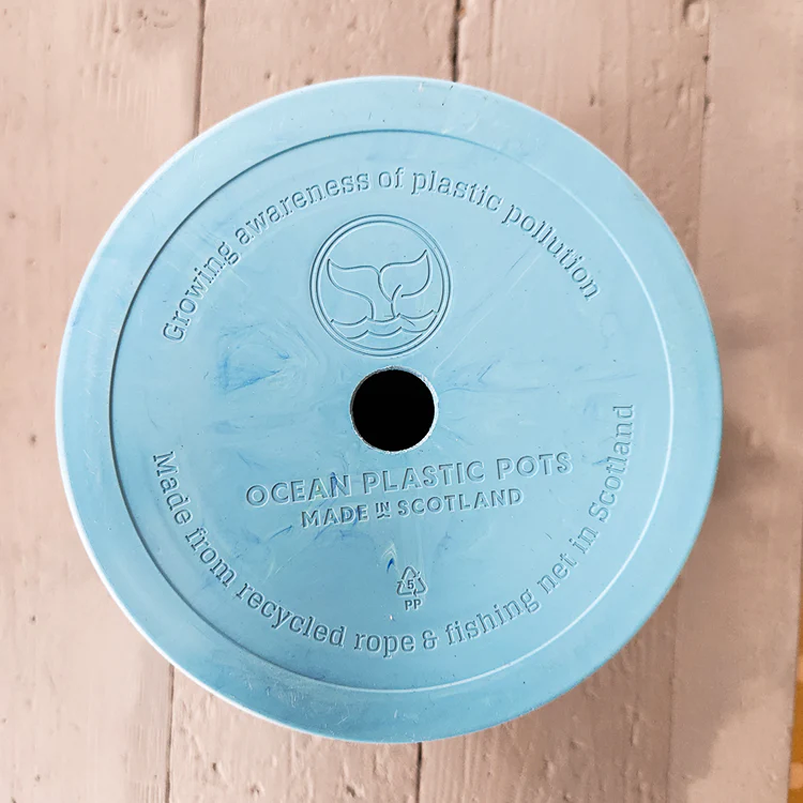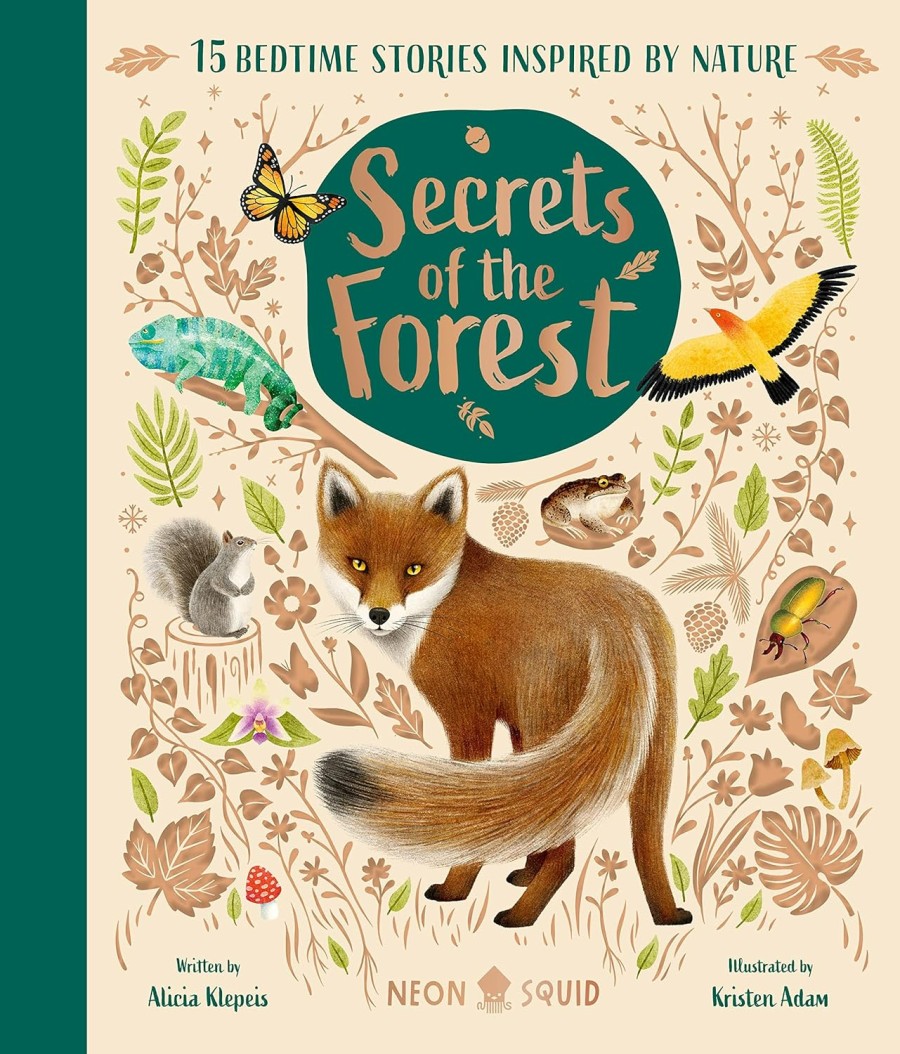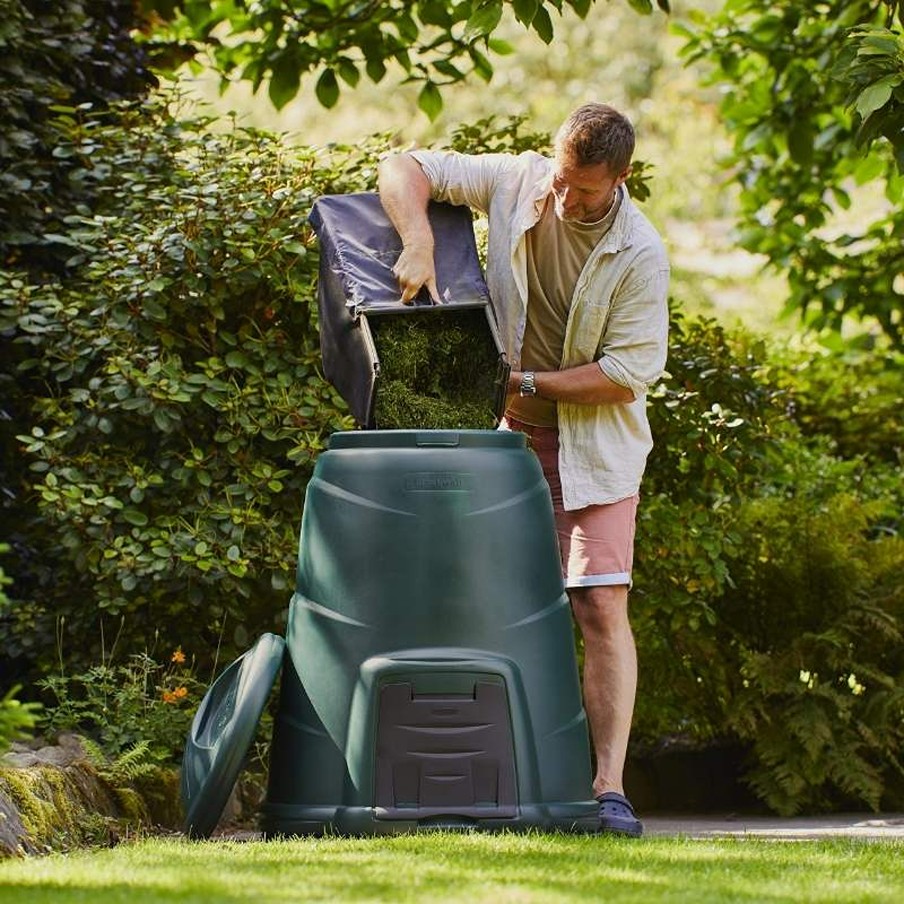
What not to compost: latest research suggests to just bin citrus, rhubarb and alliums (onion, garlic, leek, shallots, chives) as acid could harm compost creatures – same with tea/coffee grounds due to caffeine. Also bin soap nuts (natural insecticide could harm compost bin creatures).
tip for outdoor compost bins
- Keep fresh compost away from pets, as it contains mould. Learn how to make your garden safe for pets.
- Always gently disturb (don’t fork) compost piles before handling/moving, as frogs and other creatures often hibernate in or underneath compost bins.
- Avoid rodents by siting compost bins near footfall and not adding animal foods (it’s illegal to sell food made with composted animal foods). Also ensure you add more ‘greens’ (rodents are attracted to dry compost with too many ‘browns’).
- Avoid ‘hot composters’ as these ‘cook’ garden creatures that fall in, as there is no earth to keep them cool.
- Leave wormeries to the experts (worms for compost bins are different to earthworms, and many die when transferred to soil or get lost in the post.
Blackwall compost bins (also in black) are made from recycled plastic, and some councils also sell them at discounts, so check before you buy online. Making your own compost is a wonderful way to convert food waste into rich soil for your garden, and avoid buying peat, which supports habitats of endangered wildlife.
This is England’s best-selling compost bin, with an ample 330 litre capacity (or a compact 220L for small gardens) that retains heat to encourage moisture and produce a healthy mix of microorganisms. Sold with a 5-year guarantee, it’s UV-stabilised and includes a wide aperture for easy filling. You can also buy an optional base plate to place on solid surfaces to increase ventilation and improve drainage and replacement hatches.
know your greens and browns!
A good compost bin is made up of a roughly equal mix of greens and browns. Too many greens (like grass cuttings) will make your compost slimy, and too many browns (like leaves and cardboard) will make it too dry to turn into compost. Try to tear up things like cardboard for faster composting. You can usually leave grass clippings on the lawn (if you have a lot of them, try a tumbling compost bin instead).
Greens include:
- Fruit & veg peelings
- Fresh grass clippings
- Onion skins
- Egg shells
- Chicken, cow or horse manure
- Seaweed (keep away from pets)
- Dead flowers
- Cut-up plastic-free cleaning sponges
- Cut hair & pet fur (not with flea medicine etc)
Browns include:
- Fallen leaves (or use a leaf bag and sit in the corner of the garden and it will turn into leaf mould in a year or two).
- Shredded newspaper & cardboard (no magazines, due to inks)
- Sawdust or woodchips, straw or hay (in small amounts)
- Pine needles
- Cornstalks (after harvesting) if cut up
- Old paper packaging (shredded)
- Egg boxes
- Untreated wood chips
- Plant-based cut up fabrics (cotton or linen)
- Bamboo toothbrushes
a modern odour-free kitchen composter
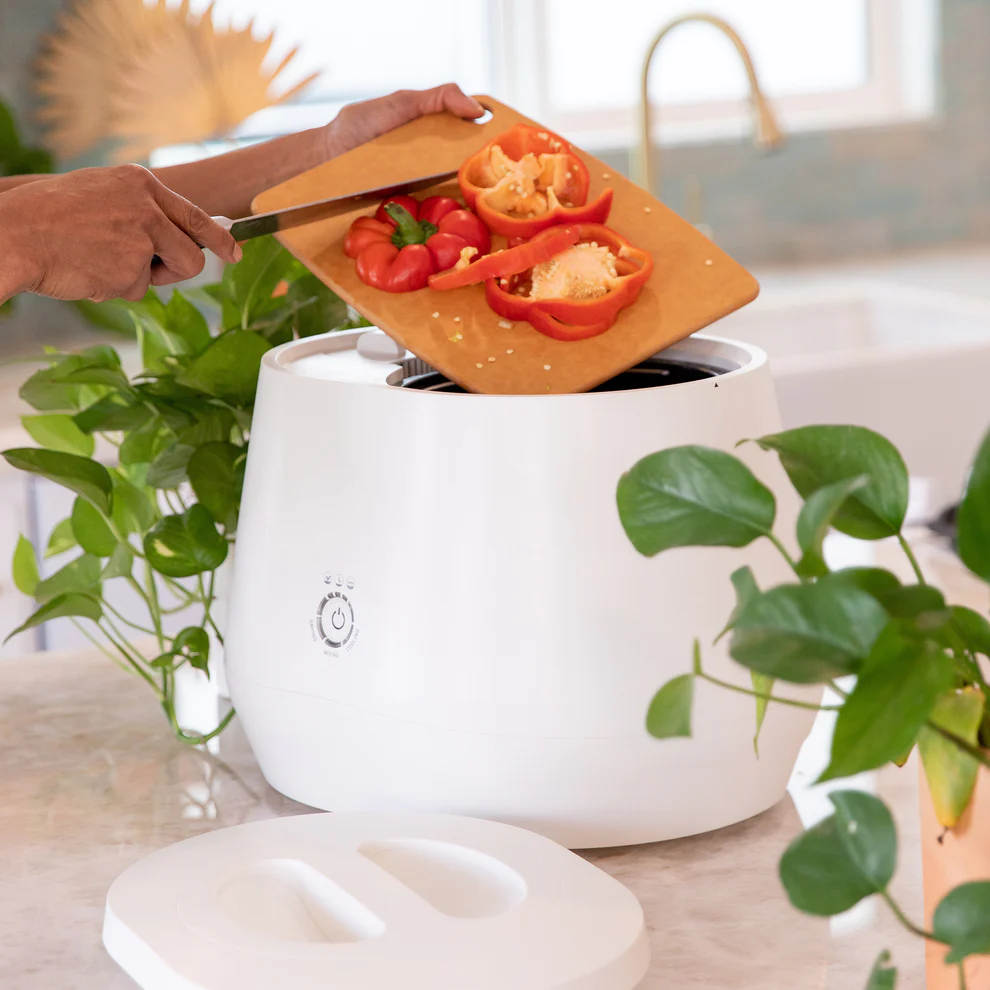
Lomi is a clever kitchen composter, to stop food waste. It stops smells and waste and is a good industrial composter for kitchens (it costs a few hundred pounds). Used by 100,000 people, it simply turns food scraps into nutritious compost. Just push the button to turn your food waste into plant-friendly dirt! No ants, fruit flies or maggots. It sits on the kitchen countertop and is small enough to store in a cabinet. Ideal for anyone in a city apartment to a huge mansion.
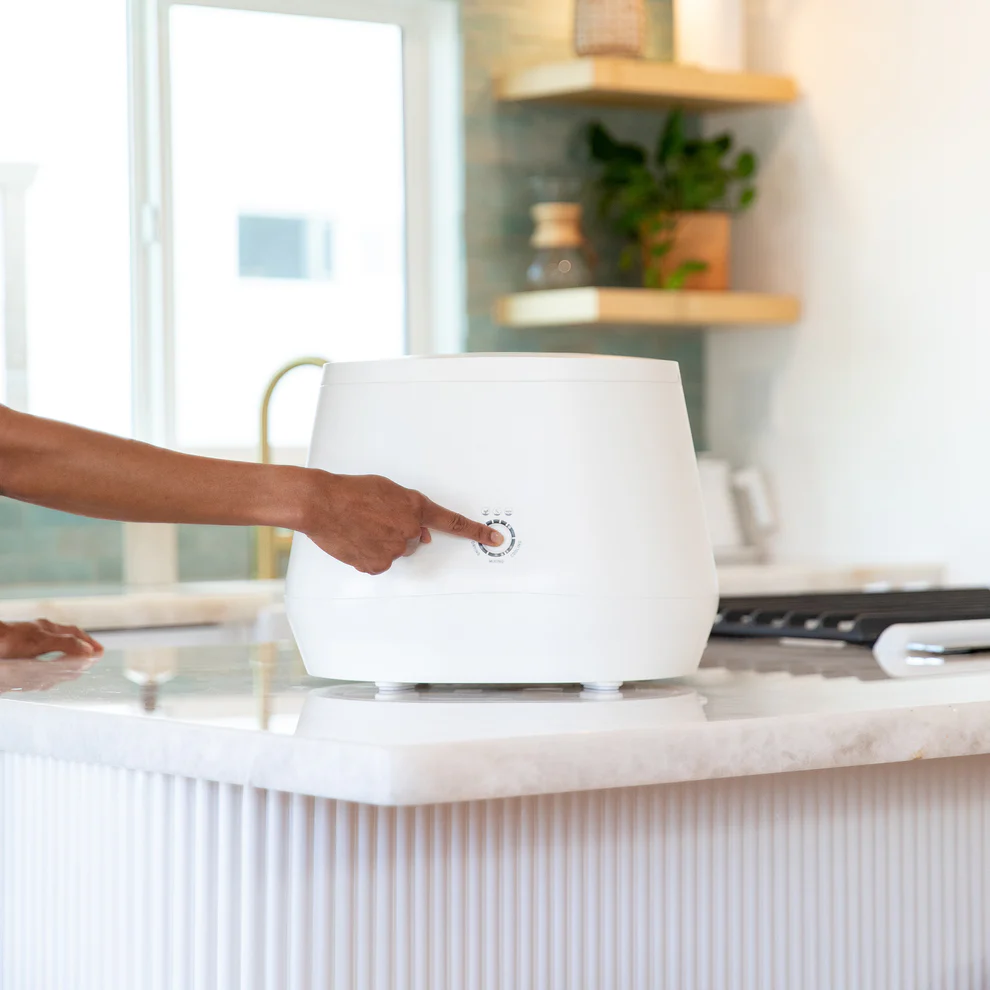
The sensors simulate and accelerate the natural process to produce compost in as little as 4 hours. You can put yard and food waste in this, but also animal foods if you eat them, along with bread and grain products and Lomi-approved compostable packaging. It’s around the same size as a bread maker and uses little electricity.
Japanese Bokashi compost bins
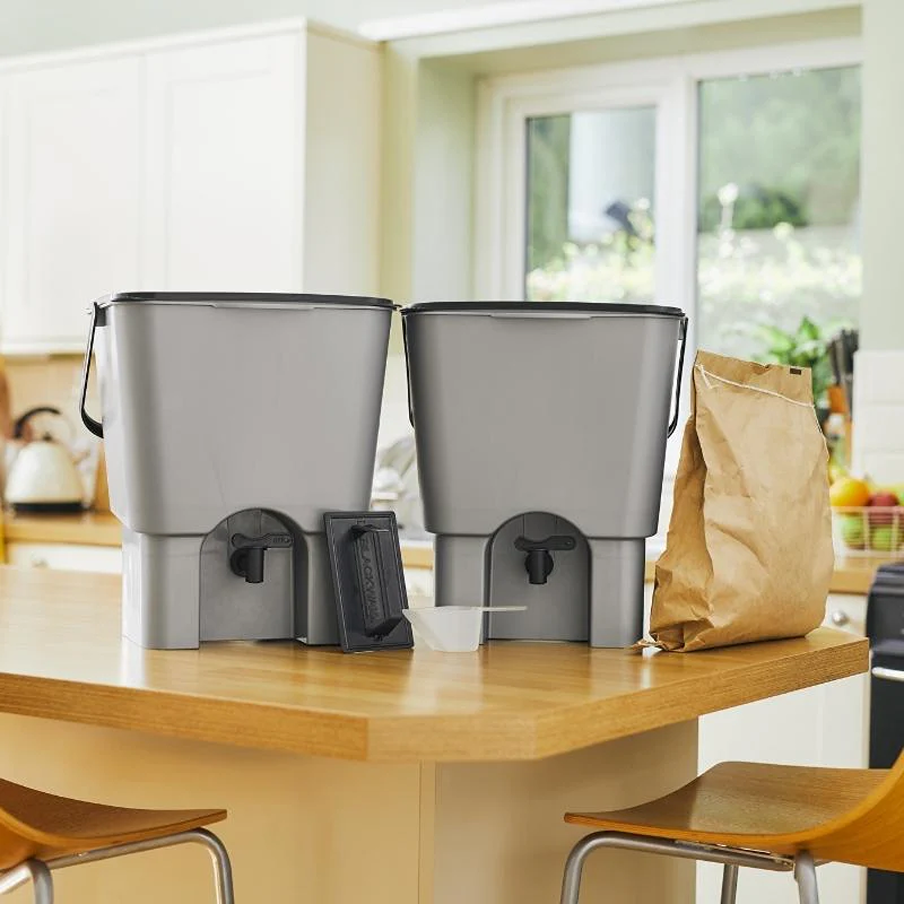
Bokashi composting bins were created by a Japanese professor and unlike conventional compost that uses oxygen, these use lack of oxygen instead, using a bokashi bran that you add to food waste, then close the lid and leave for 14 days to produce compost to add to your outdoor bin. The resulting liquid can be drained off using the tap to use as plant feed (dilute with water 1:200). You buy two, so there is always one on the go. All you need buy after that are bran refills.
what can you compost in Bokashi bins?
Bokashi bins can accept other fruit/vegetable waste, bread, dead leaves & withered flowers and used compostable dish sponges. Unlike outdoor compost bins, Bokashi bins can take most animal products if you eat them (not large bones) due to Bokashi bacteria helping to destroy pathogens. Don’t compost cooking oil or pour down drains (use a cooking oil recycling container).
Some councils offer community compost heaps. Brighton Community Compost Scheme prevents 100 tons of food going to waste each year, by setting up local compost boxes with monitors. Councils may have an industrial compost scheme, for things like ‘biodegradable plastics’ that usually only degrade in such systems.

